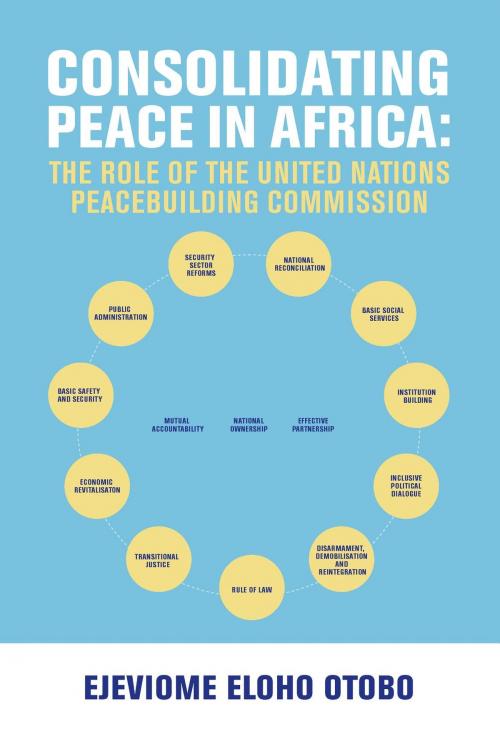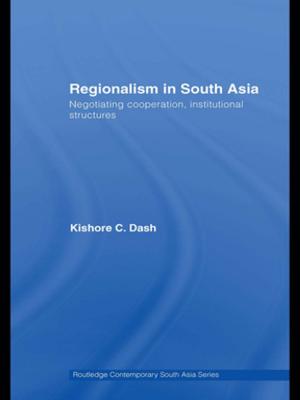CONSOLIDATING PEACE IN AFRICA
The Role of the United Nations Peacebuilding Commission
Nonfiction, Social & Cultural Studies, Political Science, International, International Relations| Author: | Ejeviome Eloho Otobo | ISBN: | 9780989491761 |
| Publisher: | AMV Publishing Services | Publication: | June 5, 2015 |
| Imprint: | AMV Publishing Services | Language: | English |
| Author: | Ejeviome Eloho Otobo |
| ISBN: | 9780989491761 |
| Publisher: | AMV Publishing Services |
| Publication: | June 5, 2015 |
| Imprint: | AMV Publishing Services |
| Language: | English |
The decision to create the United Nations Peacebuilding Commission (PBC) was one of the major outcomes of the Summit of World leaders held in 2005 to mark the 60th anniversary of the United Nations. The Commission was inaugurated in June 2006 by Kofi Annan, the then UN Secretary-General. Today, the Commission has six countries on its agenda, all from Africa. In this book, Ejeviome Eloho Otobo, who was appointed as the first Director and Deputy Head of the UN Peacebuilding Support Office, presents an in-depth and first-hand account of the performance of the Peacebuilding Commission. The book is at once a historical record and an analytical work. As a historical account, it provides an overview of the evolution of the structure and functioning of the PBC as well as the challenges that it encountered in its formative years. And as an analytical piece, it provides rich insights into the expectations of and frustrations, with the Commission, assesses its performance in fulfilling those expectations and offers proposals on ways the performance of the Commission could be improved. The author notes that the PBC will sometimes be confronted with, and will be required to respond to, a range of crises — from political crisis to economic crisis and natural or man-made disasters — in the countries on the agenda. Reflecting on the Ebola epidemic that has afflicted three of the countries on the PBC agenda, the author offers suggestions on how the PBC should respond in such country contexts. The book also takes up one of the biggest challenges that confront countries emerging from conflict: how to tackle the challenges of institution building. This volume is highly recommended for policy makers, scholars, and students interested in postconflict transition, institution building, and the intersecting issues of peacebuilding and development.
The decision to create the United Nations Peacebuilding Commission (PBC) was one of the major outcomes of the Summit of World leaders held in 2005 to mark the 60th anniversary of the United Nations. The Commission was inaugurated in June 2006 by Kofi Annan, the then UN Secretary-General. Today, the Commission has six countries on its agenda, all from Africa. In this book, Ejeviome Eloho Otobo, who was appointed as the first Director and Deputy Head of the UN Peacebuilding Support Office, presents an in-depth and first-hand account of the performance of the Peacebuilding Commission. The book is at once a historical record and an analytical work. As a historical account, it provides an overview of the evolution of the structure and functioning of the PBC as well as the challenges that it encountered in its formative years. And as an analytical piece, it provides rich insights into the expectations of and frustrations, with the Commission, assesses its performance in fulfilling those expectations and offers proposals on ways the performance of the Commission could be improved. The author notes that the PBC will sometimes be confronted with, and will be required to respond to, a range of crises — from political crisis to economic crisis and natural or man-made disasters — in the countries on the agenda. Reflecting on the Ebola epidemic that has afflicted three of the countries on the PBC agenda, the author offers suggestions on how the PBC should respond in such country contexts. The book also takes up one of the biggest challenges that confront countries emerging from conflict: how to tackle the challenges of institution building. This volume is highly recommended for policy makers, scholars, and students interested in postconflict transition, institution building, and the intersecting issues of peacebuilding and development.















